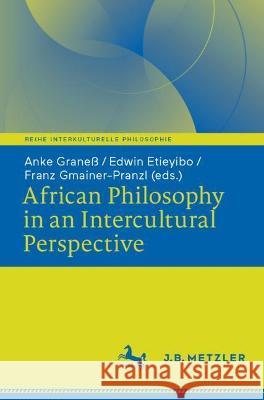African Philosophy in an Intercultural Perspective » książka
topmenu
African Philosophy in an Intercultural Perspective
ISBN-13: 9783476058317 / Angielski / Miękka / 2022 / 216 str.
Kategorie BISAC:
Wydawca:
J.B. Metzler
Seria wydawnicza:
Język:
Angielski
ISBN-13:
9783476058317
Rok wydania:
2022
Wydanie:
2021
Numer serii:
000843230
Ilość stron:
216
Oprawa:
Miękka
Wolumenów:
01
Dodatkowe informacje:
Wydanie ilustrowane











